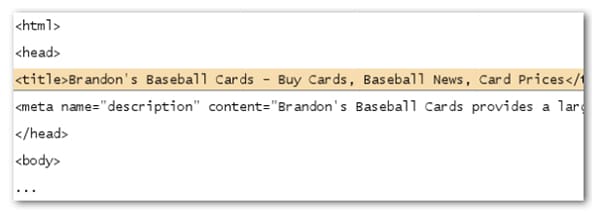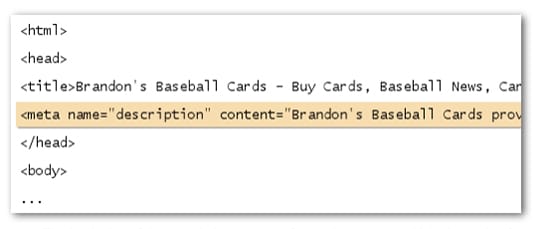Words, and more specifically written words, have a lot of meaning. They can describe simple ideas or convey complex concepts. They are at once regional and universal. Written words are increasingly how we interact with each other and what allows us to live in an informational world without borders.
So, when we ask the question as to whether keywords still matter for your website, we must consider the question from the perspective of the year 2017 and not the year 2007.
Not to get too philosophical here, but we should consider what we mean by “keywords” and what role, if any, they should play in our online marketing strategy.
The long and sordid history of Keywords
If you are interested in, or have researched Search Engine Optimization (SEO) at all, then you’re almost certainly familiar with the term PageRank. For those who are not familiar with it, a quick Wikipedia search will tell you that
“PageRank is an algorithm used by Google Search to rank websites in their search engine results.”
A funny thing about PageRank – it wasn’t named for its page ranking system, but rather got its name for being a ranking system developed by Larry Page, co-founder of Google. See, words can be tricky.
PageRank, in short, is a system for ranking your website in comparison to other websites according to, essentially, how popular it is and then determining how close to the top of a given search result it is based on that ranking. But, as only one of the many factors that Google takes into account, PageRank does not address a very important aspect of Google’s algorithm, what is your website about?
Keyword Meta Tags
Back in the late 1990s search engines relied heavily on a piece of HTML code called meta tags, specifically the keyword meta tag, to determine what a web page and therefore a website was about.
As you can imagine, enterprising business owners and webmasters quickly started abusing the keyword meta tag by adding a ridiculous number of keywords or simply using every possible keyword phrase related in any way to the content of their web page. Ultimately, search engines had to rethink how they would determine a page’s content.
In today’s SEO climate meta tags have gone the way of the dodo. It’s not that you shouldn’t use them, they are fine to include in your HTML markup, just don’t expect any great SEO boost from them.
Keyword Density
By the early 2000s search engines, including Google were using something called “keyword density” to determine what a web page was about. It’s very true to how it sounds; they measured how many times certain words or phrases showed up on a page compared to other words.
If you used the internet in the early 2000s, you might remember encountering a lot of website content that read very awkwardly:
Here at Carl’s Used Cars, we specialize in the purchase and sale of used cars. Our used cars are rigorously inspected. If you are interested in buying a used car or selling a used car, you won’t find a better used car dealer in town.
Any guess as to which keywords Carl wanted his website to show up for in search results? We used to call this “keyword stuffing,” and it kinda worked for a while – as long as you didn’t care about the experience a user had once they reached your site.
But just like keyword meta tags, search engines found a way to go beyond the obvious and improve how they viewed your website and its content.
Latent Symantec Indexing
Sometime before 2010 Google started relying more heavily on Latent Symantec Analysis, or Latent Symantec Indexing (LSI) to more accurately determine what a web page’s content was about. LSI essentially helped search engines understand that content can be about the same thing without using the exact same words or phrasing.
For example, LSI would help Google recognize that an article entitled “How to grow green tomatoes more quickly” is probably going to cover a very similar topic as “Learn to raise green tomatoes faster” and should both be returned for the search “growing green tomatoes.”
In many ways, with LSI came the end of “keyword stuffing.” It brought with it the return of content sanity and good copywriting and the inevitable question we face today, do keywords still matter for your website?
So, why have I droned on about the history of keywords? For two reasons:
- When it comes to keywords, history teaches us that if you try and beat the system, you will lose. Search engines will find a way to adjust their algorithm to ignore whatever “trick” you implore.
- Google has continuously demonstrated that they are committed to returning the most reputable and relevant web pages for any given search. If you want to do well in search results, now and in the future, don’t waste your time on gimmicks. To perform well in search engines, find a web designer that can build an attractive, engaging website, then it’s your job to create strong content for users to find.
How keywords should fit into your modern online marketing
Given the long and winding road we have taken from keyword meta tags to Latent Symantec Indexing, do keywords still matter and how should they be incorporated into your modern marketing strategy?
The answer is of course, yes, keywords still matter. They may not matter in the same sense that they did 15 or 20 years ago, but they should still play a role in your online marketing strategy.
Identifying Opportunities with Keyword Research
One of the most powerful insights you can get into how your customers find you online and how you want them to find you online is by doing keyword research. For the keyword research uninitiated, HubSpot has a great article on how to do keyword research for SEO. You can also conduct a website and SEO analysis to figure out where you stand today.
Here is the 6-step process that they outline:
- Make a list of important, relevant topics based on what you know about your business.
- Fill in those topic buckets with keywords.
- Research related search terms. – These are found at the bottom of search results in Google.
- Check for a mix of shorter and longer keywords (head terms and long-tail keywords) in each bucket.
- See how competitors are ranking for these keywords.
- Use a keyword tool, like the Google AdWords Keyword Planner, to cut down your keyword list.
This process will give you a good start. You may find that some alternative words may present more of an opportunity than others. For example, if you are running a business that serves ads on websites you may find that you might have more opportunity calling the service “online advertising” versus “digital advertising” or vice versa.
In addition to the initial keyword research you do, you will want to continue to do keyword research regarding topics that your target audience has an interest in. Follow competitor’s blogs, join social media groups, and read the news to get an idea of which topics are trending in your industry.
These topics can be used to create blog posts, or content offers like e-books, white papers, or webinars that have high keyword value for popular or recently relevant topics and therefore popular searches.
Are keywords still relevant? – How keywords still matter in SEO
After you have completed your initial keyword research, you will want to incorporate those keywords into your content and HTML markup.
While keyword meta tags have become more or less irrelevant, there are still key places where search engines will look to find keywords in your HTML markup. Google identifies all of the following areas in their beginner’s guide to SEO.
- Title Tags – Title Tags tell search engines what the name of your page is, and they tell browsers what to display for the tab.
- Description – The meta description tag is still used by search engines to identify what your page is generally about. Include keywords in this description, but keep in mind that this description is what gets display below your page title in search results, so make sure it’s written for humans. Don’t keyword stuff. It will do you no good.
- URL Structure – Use clear, concise, and keyword-rich URLs for your web pages. Take the example below. It is an example of a URL for a blog article about link building strategies. Notice that it is simple and contains relevant keywords.
- Link Text – Use appropriate keywords in linking to articles and pages on your website. Again, be natural and don’t force keywords where they don’t belong. However, whenever possible, include keywords in your link, or anchor text.
- Heading Tags – Heading tags, or hierarchy tags as they are sometimes called, are a great place to include keywords from a user experience perspective. Because Google is always striving to return the best results possible they look for these headers as key topic points making them a great place to include keywords.
- Image Alt Tags – Alt tags were created to help the visually impaired by describing what an image is a picture of. While you should not abuse alt tags to by stuffing irrelevant keywords, including relevant keywords in alt tags is a great practice.
Including keywords that you have identified in these key areas of your HTML markup is what we would call on-page SEO, and if done correctly will give you a solid foundation on which to build your SEO strategy.
Keywords and Pay Per Click
Finally, keywords will play a major role in Pay Per Click (PPC) campaigns like Google AdWords.
Search engine optimization is a long and arduous process. For many small to mid-sized businesses, there is a gap between the initial stages of investing in their online marketing and when they can realistically expect to see results from SEO efforts.
PPC is a wonderful way to fill this gap. PPC, specifically Google AdWords, allows you to bid against other websites in an attempt to be displayed first in search results for specific terms. SEO and PPC campaigns go hand in hand for lead generation in this way.
Because you are targeting the same keywords that you identified in your research, you can gain great insight rather quickly as to how your website fills the need of those searching for your identified keywords.
Also, the quality score that Google will assign each of your pages can give you valuable insight as to how Google might see that page’s relevance to a keyword in organic searches as well. A page with a higher quality score and a higher AdWords click-through rate is more likely to be returned higher in results organically for a keyword than a page with a lower quality score.
PPC campaigns can be an invaluable tool in optimizing the keywords that you want to target as well as the pages you are using to target them.
The Take-Away
Since the dawn of the internet, we have been trying to find ways to use it to our advantage. Internet searches are like an ecosystem, and we are all competing, struggling to get to the top of the food chain.
Our relationship with keywords has changed a lot since search engines started using the keyword meta tag over 20 years ago, but keywords are still a tool to be used in our struggle for online dominance. Keywords should not be the bulk of your online strategy, but they should be an important cog in the wheel.
As with anything that is as complex as search engine optimization and pay per click in Houston, unless you have the time and desire to learn, implement, and manage your campaigns for yourself, we highly recommend that you find a reputable company to provide search engine optimization in Houston.










